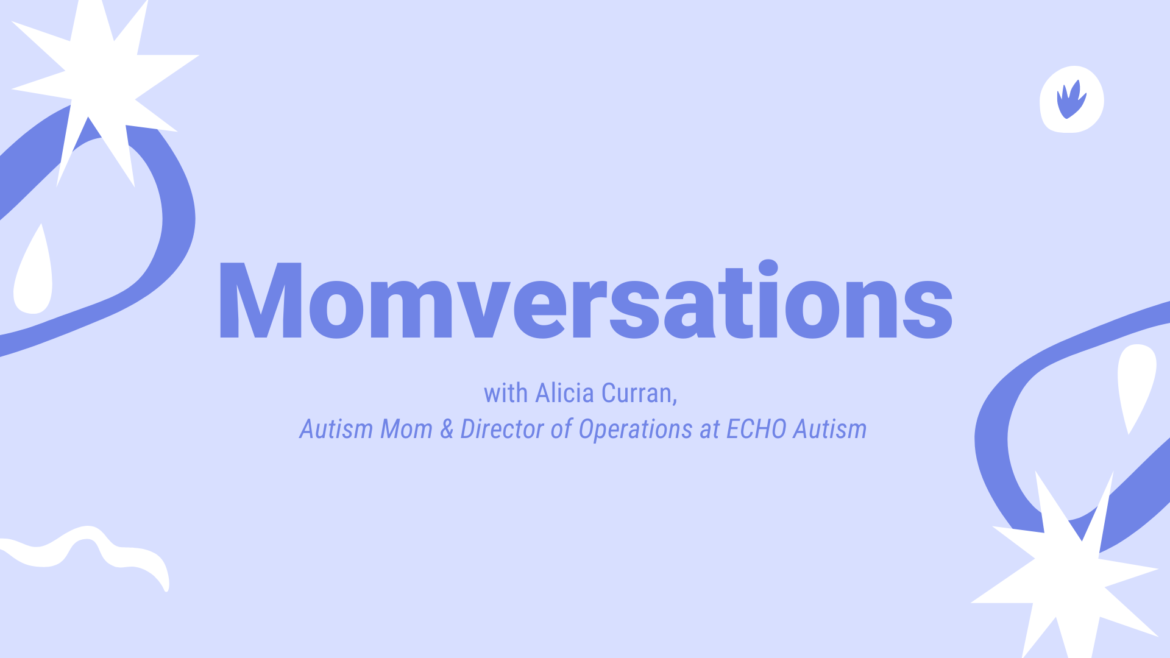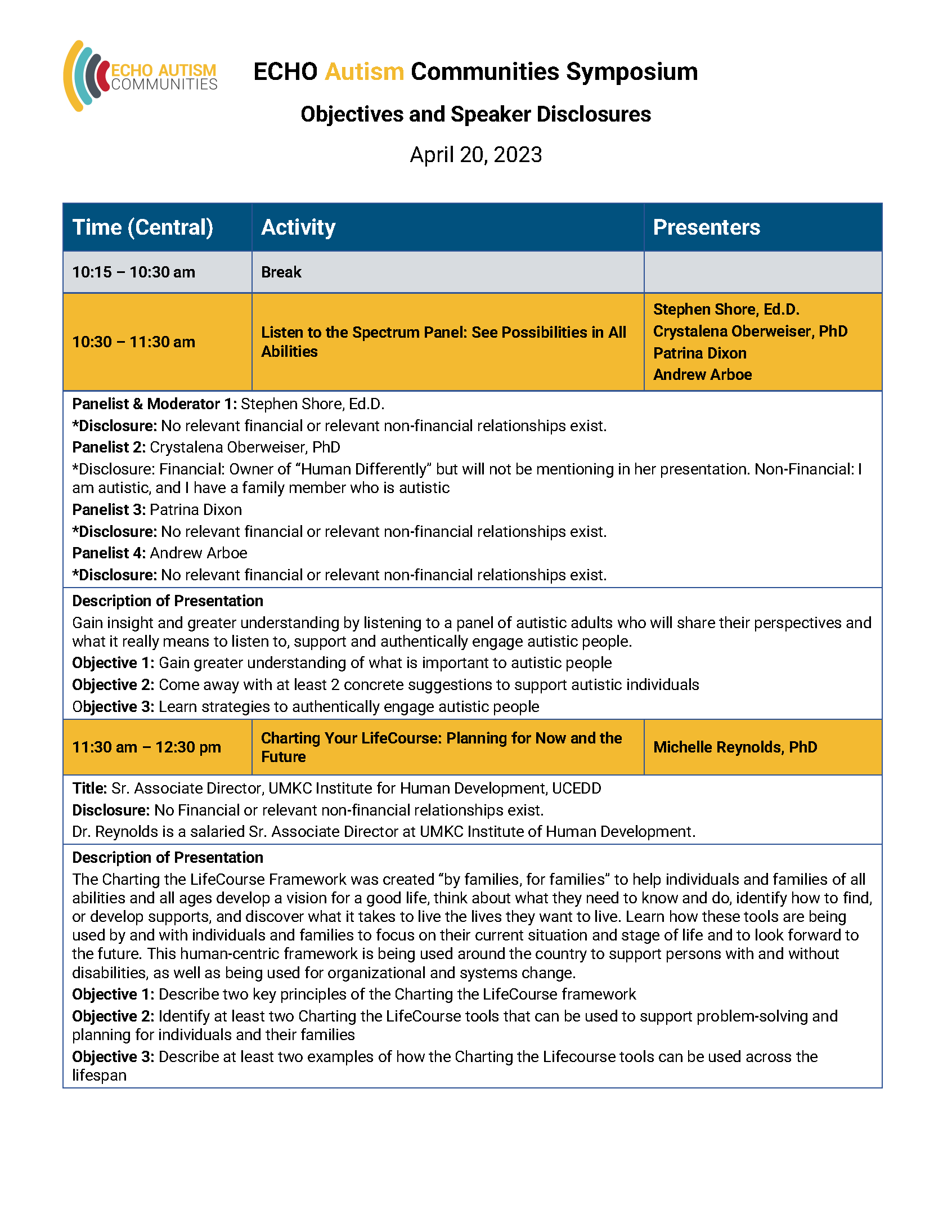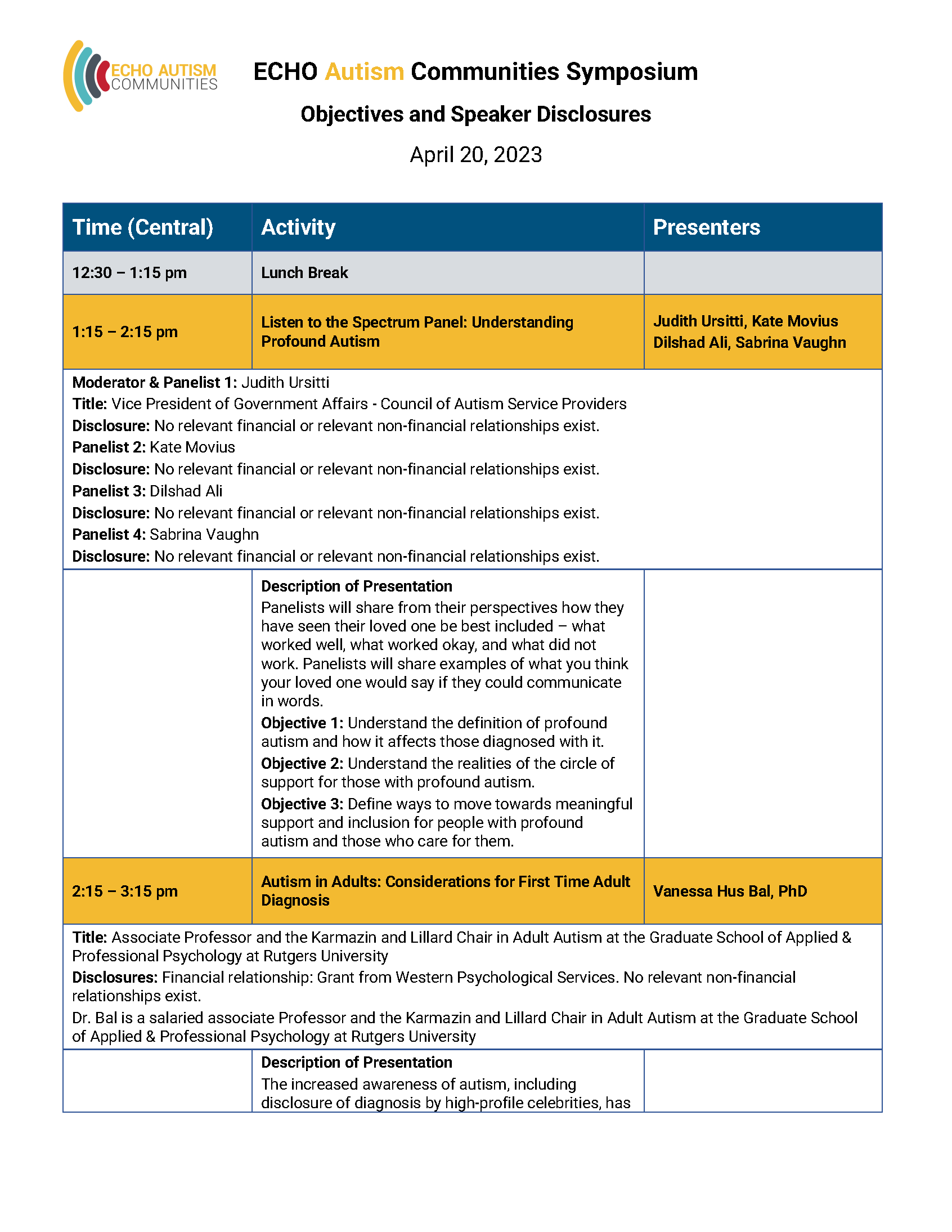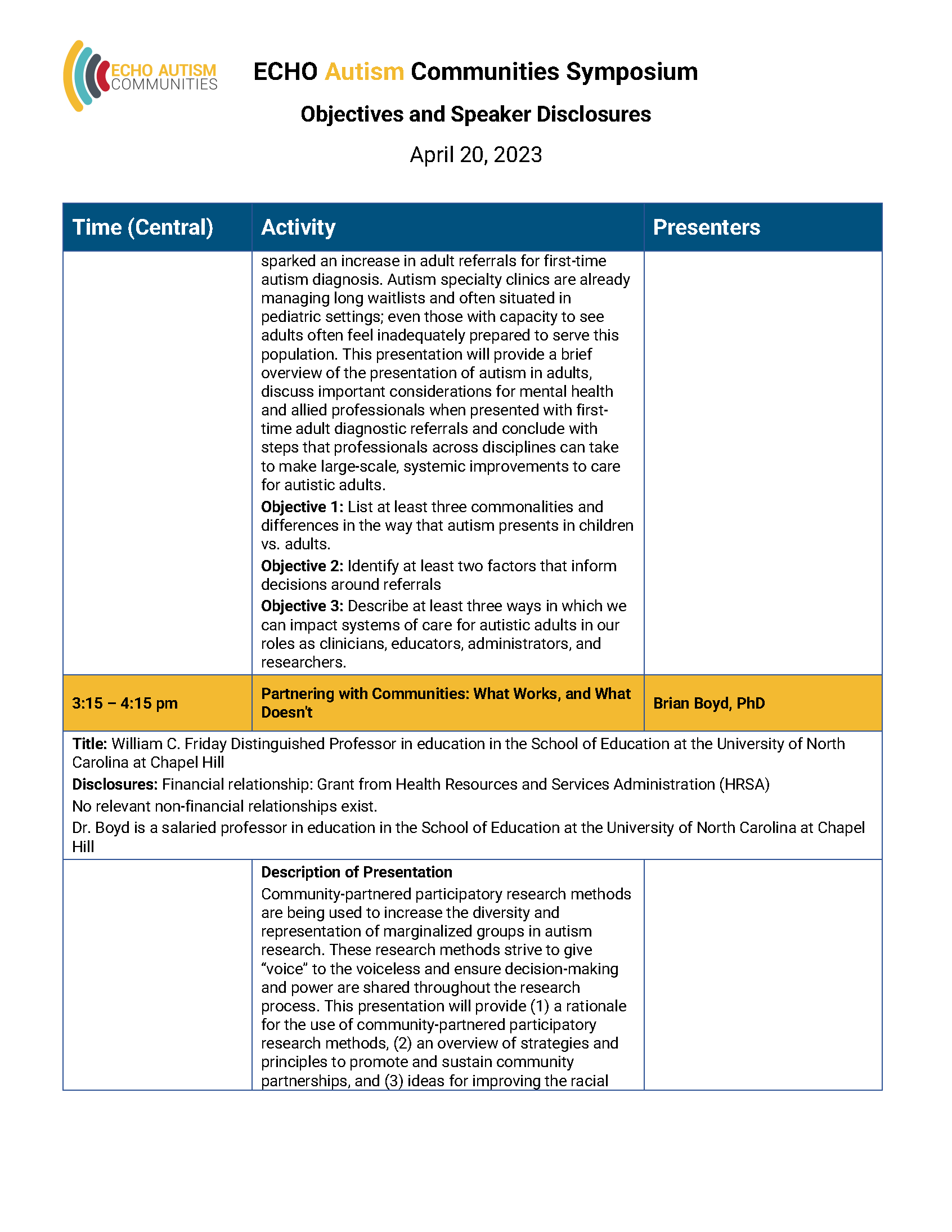At ECHO Autism, we believe in providing clinicians and families with resources that empower, educate, and support individuals diagnosed with autism and their advocates, because autism is a family affair.
Did you know autism moms experience stress levels similar to combat soldiers? Seriously.
A study published in the Journal of Autism and Developmental Disorders found that mothers of children and adults with autism had chronic stress levels comparable to soldiers, and suffered “the most pronounced physiological profile of chronic stress”, as a result of spending at least two more hours a day caregiving than mothers of neurotypical children according to researchers at the University of Wisconsin.
That’s one reason we’re introducing Momversations: a new series highlighting the experiences of moms with children on the autism spectrum. Each webisode will feature Alicia Curran, autism mom and Director of Operations at ECHO Autism, who will discuss autism parenting with insightful guests. This month, Alicia sat down with Jenn McNaught, CEO and Founder of Digital Convo Advertising, and fellow autism mom.
August 2021: Ever wonder what it’s like raising a child who requires different amounts of support than yours?
In this month’s Momversation, Alicia and Jenn dive into parenting children on different ends of the spectrum. From explaining the diagnosis to their children, to how strangers perceive them in the world, these moms get real about expectations, labels, and what it really means to be an autism mom.
Step 1: Make Room for Change
Alicia’s son Sam was diagnosed with autism spectrum disorder at the age of three. Now 20 years old, Sam has spent his life as a minimally verbal person and sometimes has aggressive tendencies, usually in response to one of his several medical and psychiatric co-occurring conditions. When he was younger (and smaller), Alicia was more easily able to physically help when a situation got out of control. Now that he stands 6 feet tall and weighs 250 pounds, the tables have turned a bit for this tiny mama—in more ways than one.
When Sam was first diagnosed, Alicia was brand new to the world of autism. Through meticulous research, some good information, some not so good, and lots of trial and error, she learned everything she could about therapies, education policies, and advocacy. Alicia has since dedicated her life to making sure other families and individuals with autism get access to helpful resources. However, much like when Sam was first diagnosed, Alicia finds herself in uncharted territory once again. As Sam enters adulthood, they have to figure out together what his future is going to look like.
Jenn is the mother of two neurodiverse children. Tyler was diagnosed with sensory processing disorder at age 9, which presents very similar to autism. A few years later, her second son, Mason, was diagnosed with autism and ADHD, also when he was 9. For her, adapting to change started early in the diagnostic process.
Typically to diagnose autism, clinicians with expertise in autism and other neurodevelopmental conditions, use structured and often standardized evaluation tools to document behavioral observations and collect information through a diagnostic interview with the person and family. This information, combined with their expertise, is used to inform their clinical judgement and making a diagnostic decision based on the DSM-5 autism spectrum disorder criteria.
The first time Jenn sought out an evaluation, she and her son both sat down with the specialist together. During the initial consultation, they asked Jenn to share why she thought her son might be a candidate for an autism diagnosis, she didn’t realize the impact this conversation might have on her son.
Jenn: It still breaks my heart to even think about the doctor asking me to basically tell them everything that’s wrong with my son while he’s in the room.”
“I mean, I was a young mom, I didn’t know better. I was like, ‘Well he does this, and this, and he yells and screams, and we can’t clip his nails, and he won’t sleep, and he throws his plate if anything’s touching…’ I was saying all these things and the doctor was writing everything down and my poor son was crushed. He does have comprehension, he’s hearing what’s happening. It hurt our relationship for a long time. It was the first time that I had really put into words what I was going through. I was a single mom back then and I had no support system and I feel like I was just letting it all out. But it was totally inappropriate and I wish the doctor had excused my son to not be in the room at all.”
Years later, when Jenn took her second son in for a diagnosis with a new doctor, she learned to approach the situation completely different. While she recognized he had challenges and needed support, she understood the importance of ensuring his self-esteem wasn’t crushed in the process.
Jenn: “I said ‘This is Mason and he has some superpowers. He can talk about Pokemon for 8 hours at a time without stopping. He can stay up for 36 hours without sleeping.’ I named all of these things and I classified them as superpowers and my son was sitting next to me getting so proud of himself hearing him talk about these amazing and wonderful things.”
Rachel Ehmke, managing editor at the Child Mind Institute, believes it’s stories like these that emphasize the importance of finding a physician that understands autism diagnosis and will listen to patients’ experiences.
“Try to find a practitioner who is able to answer your questions readily and makes you feel comfortable. A clinician who takes your concerns seriously and is experienced in assessing autism spectrum disorder is essential to getting an accurate diagnosis,” she advises.
Step Two: Talking About Labels
Receiving an autism diagnosis can be different for everyone. Right now, the average age of diagnosis in the United States is over four years old. But that certainly isn’t the case for everyone. Take Alice, for example, a Black woman who didn’t receive an autism diagnosis until she was in her 20s.
In circumstances like those, the parent may not be too involved in explaining what autism is and what it means for their child. But in circumstances like Jenn’s and Alicia’s, the task became telling their children what the diagnosis meant, and to navigate what being given “a label” meant for them and their families.
Jenn: “Over the years, Tyler has checked back in with me because we don’t talk about that label very often at home. Probably once a year he’ll ask ‘Do I still have that?’ Recently I’ve said ‘You know, you’ve come a really long way, we’ve worked on a lot of things, you’re doing great.’ And that’s it. We just sit with that.”
“We don’t use a lot of labels at home. I think that’s good. My oldest, when he feels labeled, feels like I’m telling him that he’s ‘less-than’, and I never want him to feel that way. I’ve even told him recently that he’s growing out of it, which is true. It’s not growing in height or age, it’s working through behaviors and learning how to function in society, which has taken tons of sweat equity as a mom—and him—he’s putting in a lot of work too. Those routines so that I know he’ll be able to function as an adult.”
“But with my youngest son, when I sat him down and told him he was diagnosed with autism, he cried. He was very sad. And then I explained to him that this is a superpower, this is something you are blessed with. I just started telling him it’s not sad, you’re super smart. You memorize everything and if I need to know [something], you just know it. When I put it that way and I build him up and explain to him that this is what he’s dealing with, but it’s a good thing and can bless the lives of others, it’s okay. But if I just say ‘You have autism’ and leave it at that, it was crushing to him. He needed more context and for me to show him how we can springboard that into a positive future and what that would look like for him,” said Jenn.
Alicia: “For us it’s completely the opposite, because I think it gives him a reason for some of the things that he does that he doesn’t want to be doing.”
“Well, first of all, I didn’t really think I needed to tell him, because again, I took advantage of the fact that he didn’t have a lot of verbal abilities and he wouldn’t understand. And that was totally a misconception; it’s one of the regrets that I have definitely learned from that. So we didn’t tell Sam until he got older. I think it made a lot of sense to him.”
“I think he had a lot of questions like, ‘Why do I do this when I know it’s not right? And I just can’t help myself and I just do it?’ I think he was frustrated trying to figure out why he was doing the things he was doing.”
“So we use the label a lot now, especially if he has a huge tantrum. Sam is 250 pounds, 6 ft tall and highly aggressive due to some co-occurring psychiatric conditions that he has. Irritability comes with the package deal in some kids. When he is having one of those episodes trying to calm him down, I try to give him the reason. It’s not because he’s a bad kid, it’s not because he is out of control. It’s called autism. [Alicia will tell Sam], This is the reason that you’re this way but let’s calm down.I believe in you. You have the ability to bring yourself back down and do the right things. We use that a lot. But I will say one of the biggest regrets is certainly not telling him earlier on because I’m 1000% positive he would’ve understood and maybe that would’ve allowed him to work through some of that frustration.”
The hard part, Alicia emphasizes, is that no journey is alike. Every child connects to their diagnosis differently, so the strategies parents use for success aren’t really one size fits all. Your experiences shape your opinions of what is right for your child and family. The right answer is different for everyone.
Step Three: Handling Judgment
Interestingly, a recent study discovered mothers are more likely to be held responsible for their child’s behavior than fathers. This could be a huge reason why mothers of children on the spectrum experience higher levels of anxiety, insomnia, and hypersensitivity, and even work performance issues.
Mothers were also more likely to report feeling misunderstood by professionals, and were more likely to find motherhood an isolating experience, to worry about others judging their parenting, or feel unable to turn to others for support in parenting.
No matter where a child falls on the spectrum, Jenn and Alicia highlight the truth behind these studies. As a mother of two children who often present as neurotypical, Jenn often wonders if she has even earned the label of “autism parent,” and usually chooses to keep her children’s diagnosis close to the vest.
Jenn: “I feel almost inadequate, or like I can’t claim being an autism mom because I don’t have some of the same struggles that you have,” she says to Alicia.
“If you met my kids right now, the average person would think ‘Oh they’re neurotypical, they’re maybe a little eccentric, they talk a lot, maybe they flap their arms or stim a little, but they seem neurotypical’. So I feel in your presence, for a mom who has a lot more support needs for their child, I don’t have any room to even say anything, because my kids are easier than what you’re dealing with. I feel like I need to be quiet, count my blessings, and just be glad that at least they’re verbal and I’m not usually having to pull them out of the store, and they’re not bigger than me and they’re usually not punching me. That’s kind of why we’re having this conversation too.”
“I’ve had many sleepless nights, I’ve cried my eyes out, I’ve had to sit with my child in school, teach him how to play with other people. Every time that my one child interacts with his peers I have to be there because he will hit someone or scream at someone or insult someone and he feels like he’s just being honest when he tells someone, ‘I don’t like you, you need to get away from me and I think that you’re dumb.’ But obviously that’s not the social grace that we’re used to, but in his mind, he’s just speaking his mind and he doesn’t register that that’s not a typical way to treat other people.”
Alicia: “I don’t think you should ever feel that way. Again, an autism journey is different for every single family, every single person. There are days that are better for me than are better for you, and you have better days than I do sometimes. It really doesn’t matter where our kids are on the spectrum, the journey is difficult. We try so hard to support our kids and allow them to be the best they can be.”
Jenn: “Because my kids need less support, I keep trying to pretend that they’re neurotypical and have a neurotypical lifestyle. I’ll have friends over and don’t tell them about the diagnosis and just hope everything goes okay because I don’t want to make it seem like I’m using a crutch or making an excuse for their behavior.”
“But I had a mom come over with her kid and we had a train set setup and my son, who’s on the spectrum, was probably 7 at the time. This kid started moving some of the trains and tracks around and Mason completely lost it. It was horrible. He was throwing things, screaming, kicking, just completely lost it. Now, I’m a working mom. I own a business. I’m pretty sure I was hormonal that day. I’m sure I was sweating, I was hot, my house was a mess, I had a thousand things on my mind. I broke. I actually yelled at that mom for letting her child go over and mess with the train. Now that I’m out of the situation, I realize, so what?”
“I should’ve taken a breath, removed my child, sat down and talked with him… but that’s not what happened. My kid freaked out, then I freaked out, then the mom freaked out, her kid freaked out. We’re not friends anymore. She never came over again, she never talked to me again. I’m sure she thinks that I’m a psychopath but the truth of the matter is after she left, I had to spend six hours—that I didn’t have—dealing with that.”
“So even though on the surface I feel like I should have it together, my kids are verbal, they need less support, they go to mainstream school, they look and act neurotypical… behind the scenes that’s not really what it looks like. But people don’t know that, unless they’re in my inner circle. And I don’t want to always bring people into that because that can be scary and it can be messy and difficult and dangerous sometimes. But at the same time, I don’t know how to feel confident or rightfully sharing the same space as you, Alicia, who has a child who needs so much more support for life!”
Alicia: “You should never ever discount being an autism mom. You’re just as strong of an autism mom and advocate as all the other moms I have met. We all have to have super capes throughout the day, it’s just a different set of issues to deal with. You and I have so much in common. Somedays we can deal with them with ease. And some days I have days where I just don’t handle it well or I want to crawl in a hole. The journey for a parent is difficult because of that sense of helplessness. We want to help our kids be successful, we feel obligated to help our kids. And sometimes when that’s not possible, that is the most helpless feeling in the whole entire world.”
Since Sam really displays autism, Alicia jokes that people see him coming, and as a result, excuse much more than they might with a child who appears neurotypical.
“I think certainly in his adult years, he definitely has an advantage. Because no matter what happens to me or my husband, he’s always going to have that support from state and federal systems because of the level of need for support that he has. So he’s at a total advantage. Where I think sometimes when those kids who don’t always present that they have autism are at a total disadvantage because people are expecting this. And some days, yes they hit the mark! But for the days they don’t, it’s really, really difficult,” Alicia said.
Step Four: Coping in Our Own Way
Parents go through a lot, especially mothers of children on the spectrum. With Momversations, we hope to highlight the real experiences of mothers to make sure needs are being met, and offer up support and community around every corner. The journey is different for everyone, so coping looks different in every household. But these moms have tips and tricks to share that might make the experience, in the very least, more relatable.
For Jenn, a lot of her family’s work towards finding balance starts with setting expectations.
Jenn: “With your kids, at least for me, one of the most important things is setting expectations. Especially with kids on the spectrum. I tell them “We’re going into Toys R Us, we’re buying a toy for your friend’s birthday party, then we’re going home. We’re not buying anything else.” Saying that before we get in the car, saying that in the car several times, discussing it, having them repeat it back to me, making sure that they understand it, saying it as we’re getting out of the car, saying it as we’re going into the store, saying it as we’re getting the toy off the shelf for the friend, and still—in one instance that I can recall—my son had this huge meltdown in the store. Kicking and screaming because he wasn’t getting a toy from Toys R Us.”
“I promise you, many parents in the store were judging me because they didn’t realize I spent two hours preparing for this moment and that this is something we had to go through. It was a learning thing for him, and it’s part of his autism.”
Alicia: “What’s so funny is that all the steps you took as you were going to Toys R Us, walking into Toys R Us, getting the toy in Toys R Us, I’ve done the same exact thing, in that order, exactly what you’ve described. It’s obvious that Sam has autism, so I do think that that helps me become an open book because it is what it is. I really don’t have to explain, it’s an advantage. How he displays and exhibits those autism symptoms tells the story for me.”
For Alicia, it’s about constantly challenging your kids.
Alicia: “Sam knows all the things that he needs to do. He executes some of them beautifully, totally independently. And he knows when to ask for help. It’s not easy to do, but it’s so important for parents. Challenge your kids to be as independent as possible. Because when they’re little, it’s one thing. But when they grow up to be 20 like Sam, and I’m trying to get ready and now I have a job and don’t stay home with him anymore, it can be really burdensome for me, and then that leads to frustration, which frustrates him and the rest of the house, so I think that’s one of the key takeaways.”
“Empower and challenge kids, even if you don’t think they are able to accomplish something. Challenge them, because I will tell you in my own experiences, Sam surprises me every single day.”
Jenn: “I love what you said about challenging them. My kids need less support than Sam does, but we’ve had to build on things. I remember when they were 3 and 5 we started with I’m holding their hand on the toothbrush with their hand, showing them how to do the little circles, and where I think with a neurotypical child that might have only taken 5 or 10 times, with my children it took 12 to 18 months. When they were really little, they wanted to drink the toothpaste and they were jumping all around and there was toothpaste everywhere and it was a struggle. I had toothpaste in my hair, it was a 45-minute process, and are they ever going to get to bed? We’ve come a really long way from that. But it’s because we challenged them. I do totally agree with challenging them and teaching them one step at a time to get just a little bit more advanced and learning what they can be comfortable doing. I think that that carries no matter what level of support the child on the spectrum needs.”
Alicia: “I think that’s a key highlight that’s imperative for everyone to understand. It doesn’t really matter where you land on the spectrum if you are verbal, if you’re minimally verbal, if you’re nonverbal… No matter what level of support you need to be successful throughout the day, there are difficulties throughout everyone’s journey.”
“I hear from a lot of parents that think, ‘Oh if only… If only my child was verbal, if only my child was more independent… But in my experience, I have worked with families a long time, I’ve been very active in the autism community for the last 20 years, I’ve heard tons of stories, I have lots of experience myself. I will tell you that it’s not less difficult. No journey is less difficult. It’s just a different set of issues.”



































